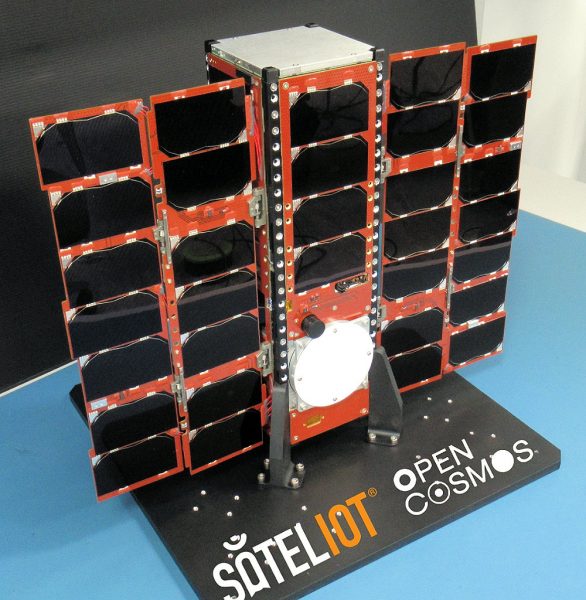Open Cosmos UK Launch Experimental Nano Broadband Satellites

A UK space technology firm called Open Cosmos has announced the successful launch of two commercial Low Earth Orbit (LEO) nano satellites, which are focused on the Internet of Things connectivity market and harness various 5G and Long Range Wide Area Network (LoRaWAN) technologies.
One of the two tiny LEOs will grow the IoT constellation of UK based Lacuna Space, which uses LoRaWAN, and the other one will be the first satellite of 5G IoT space telecom operator Sateliot (they’re planning to build 100 before the end of 2022 – the first one is a demo mission). Granted, this isn’t really aimed at the consumer broadband space, but it still fosters some interest.
Each satellite is about the same size as a Microwave oven, weighs between 2 – 12kg (depending on whether they’re of the 3U, 6U or 12U platform) and will orbit at an altitude of 500km to guarantee IoT connectivity at a global scale. The smallest 3U satellites can push top download rates of just 0.5Mbps (0.25Mbps upload) and this goes up to 150Mbps (50Mbps) for the 6U and 12U designs via the UHF/VHF, S-band and X-bands.
Advertisement
Obviously, these are both a lot smaller and lighter than the broadband satellites from larger LEO platforms, like SpaceX’s Starlink, but then they’re only designed to connect small low powered IoT sensors and to conduct limited Earth observation science (i.e. they don’t need to move masses of data, just enough to tackle monitoring of the environment, biodiversity, maritime logistics, and off-shore infrastructure etc.).
Open Cosmos has invested over £4 million in R&D on the project, thanks to the support from the UK Space Agency (UKSA) and European Space Agency (ESA), growing the team from 5 to 50 people over the past few years. Now the satellites are up in space Open Cosmos will be monitoring and operating the mission from four ground stations around the globe.
Rafel Jordá, Founder and CEO of Open Cosmos, said:
“These launches mark a major milestone for Open Cosmos, demonstrating the capacity of low-cost satellites to provide IoT connectivity to remote parts of the world and collect data. With £300bn of wider UK GDP supported by satellite services, Open Cosmos is key to unlocking these services and making them more accessible for businesses and governments across the world. We’re also extremely proud that Monday’s launches have been made possible by working closely with the UKSA, ESA, the Catapult and all our partner companies at Harwell Campus and abroad. We look forward to continuing to push forward the potential for UK space tech in 2021 and beyond.”
Catherine Mealing-Jones, Director of Growth at the UK Space Agency, said:
“The UK is a leader in the design and manufacturing of small satellites. With our support innovative companies like Open Cosmos, Lacuna Space and Oxford Space Systems are developing exciting services to improve our daily lives. Our space sector is thriving and it is fantastic to see these ambitious UK companies working together to enable connectivity in remote and hard-to-reach parts of the globe.”
We should add that Oxford Space Systems, also based at Harwell, supplied an innovative deployable antenna for the Lacuna satellite (probably looking a bit like this). This represents another key achievement for OSS, being the third antenna successfully launched in orbit over the last 6 months.
Following these two launches, Open Cosmos will look to expand its commercial offering, delivering constellations for both private companies and governments in need of accurate global and information services. Open Cosmos has 10 missions under development at the moment – including the MANTIS mission in partnership with the ESA-Incubed program and UKSA, which aims to provide high-resolution imagery and IOD6 in partnership with the Satellite Applications Catapult that will test innovative services in orbit. These satellites will be key to powering digital transformation in many sectors and fight the climate crisis using satellite data.
Advertisement
Mark is a professional technology writer, IT consultant and computer engineer from Dorset (England), he also founded ISPreview in 1999 and enjoys analysing the latest telecoms and broadband developments. Find me on X (Twitter), Mastodon, Facebook, BlueSky, Threads.net and Linkedin.
« ISP Zzoomm Extend Gigabit Broadband to Ascot and Sunninghill






















































Comments are closed